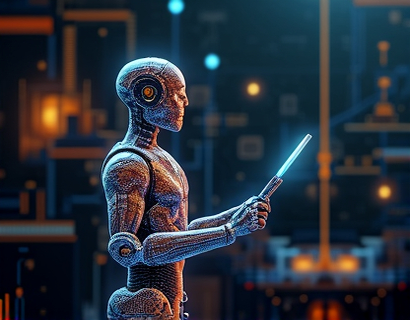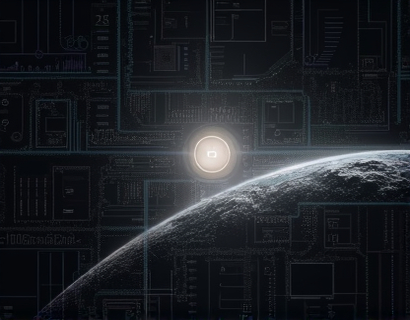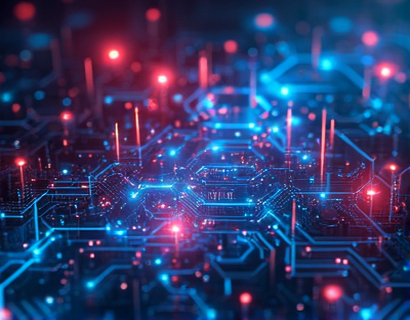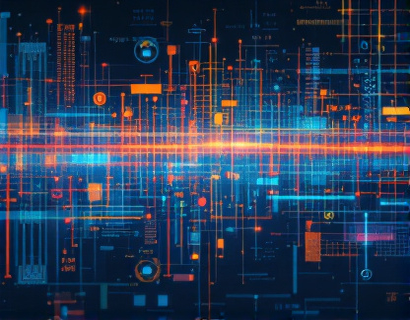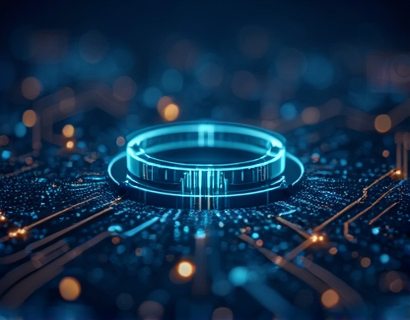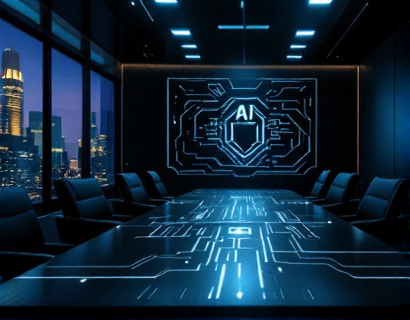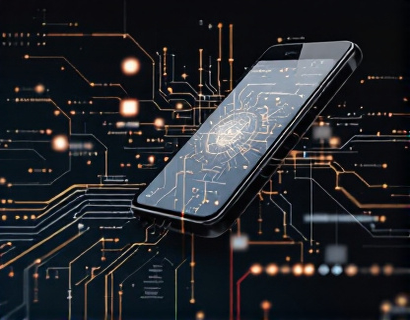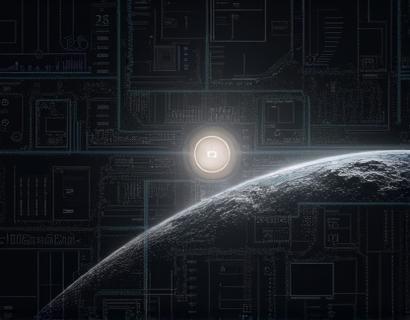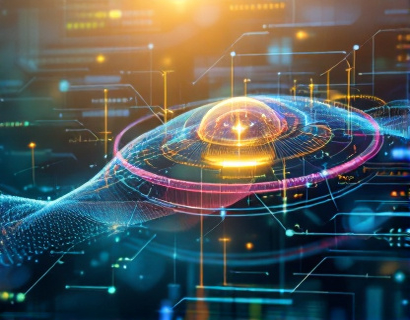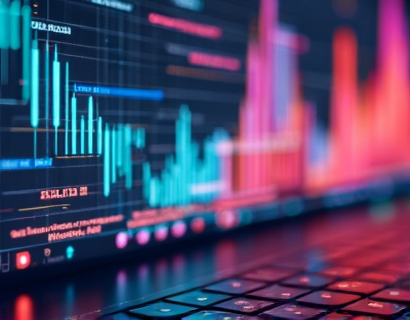Transforming App Ecosystems: The Synergy of Crypto and AI
The integration of cryptocurrency and artificial intelligence is revolutionizing the app ecosystem, paving the way for more efficient, secure, and seamless digital interactions. This convergence of technologies is not just a trend but a fundamental shift in how we perceive and utilize digital solutions. As we delve into this transformative landscape, it's essential to understand the key components and potential implications of this merging of forces.
Understanding Cryptocurrency and AI
Cryptocurrency, at its core, is a digital or virtual currency that uses cryptography for security and operates on a decentralized network, typically a blockchain. This decentralized nature eliminates the need for intermediaries, reducing transaction costs and increasing transparency. On the other hand, artificial intelligence involves the simulation of human intelligence processes by machines, particularly computer systems. These processes include learning, reasoning, and self-correction, enabling AI to perform tasks that traditionally required human intervention.
The intersection of these two technologies creates a powerful synergy. Cryptocurrency provides a secure and transparent medium for transactions, while AI enhances the functionality and user experience of applications built on this infrastructure. Together, they form the backbone of a new generation of apps that are not only more efficient but also more resilient to fraud and security threats.
Enhancing Security with Blockchain and AI
One of the most significant benefits of combining cryptocurrency and AI is the enhancement of security measures. Blockchain technology, the underlying framework for most cryptocurrencies, ensures that transactions are immutable and tamper-proof. However, the dynamic nature of AI can further fortify these systems by detecting and mitigating potential threats in real-time.
AI algorithms can analyze vast amounts of data to identify patterns and anomalies that may indicate a security breach. For instance, machine learning models can be trained to recognize unusual transaction patterns or suspicious user behavior, allowing for immediate alerts and automated responses. This proactive approach to security is crucial in a digital landscape where cyber threats are becoming increasingly sophisticated.
Moreover, AI can enhance the security of cryptocurrency wallets and exchanges. By implementing AI-driven authentication methods, such as behavioral biometrics, the risk of unauthorized access can be significantly reduced. These methods analyze user behavior and device patterns to verify identity, providing a more robust security layer than traditional password-based systems.
Optimizing User Experiences through Personalization
AI's ability to process and analyze large datasets makes it an invaluable tool for personalizing user experiences. In the context of cryptocurrency and app ecosystems, this means tailoring services to individual user preferences and behaviors. For example, a crypto trading app can use AI to analyze a user's trading history and market trends to provide personalized recommendations and alerts.
Personalization extends beyond just recommendations. AI can optimize the user interface and experience based on user interactions, ensuring that the app is intuitive and user-friendly. This level of customization not only enhances user satisfaction but also increases engagement and retention rates. In a competitive market, the ability to offer a seamless and personalized experience can be a significant differentiator.
Streamlining Operations with Smart Contracts
Smart contracts, self-executing contracts with the terms of the agreement directly written into code, are another area where cryptocurrency and AI converge to transform app ecosystems. These contracts automatically enforce and execute the terms of an agreement when predefined conditions are met, eliminating the need for intermediaries and reducing the risk of disputes.
AI can further enhance the functionality of smart contracts by providing predictive analytics and decision-making capabilities. For instance, AI can analyze historical data and market conditions to predict the likelihood of certain events, allowing smart contracts to make more informed decisions. This integration can streamline complex processes, such as supply chain management or financial transactions, making them more efficient and reliable.
Fostering Innovation through Decentralized Applications
The combination of cryptocurrency and AI is also driving the development of decentralized applications (dApps), which operate on blockchain networks and leverage AI to offer advanced functionalities. dApps can range from decentralized finance (DeFi) platforms to AI-powered predictive analytics tools, all built on a foundation of transparency and security.
DeFi platforms, for example, allow users to lend, borrow, and trade cryptocurrencies without traditional financial intermediaries. AI can enhance these platforms by providing sophisticated risk assessment tools and automated trading bots. These tools can analyze market data in real-time, execute trades based on predefined strategies, and adapt to changing market conditions, all while maintaining the decentralized and secure nature of the platform.
Moreover, the decentralized nature of these applications ensures that no single entity has control over the entire system, reducing the risk of central points of failure and increasing resilience. This democratization of technology empowers users and developers alike, fostering a more inclusive and innovative ecosystem.
Challenges and Considerations
While the potential benefits of merging cryptocurrency and AI are substantial, there are also challenges and considerations that must be addressed. One of the primary concerns is regulatory compliance. The regulatory landscape for cryptocurrencies and AI is still evolving, and apps that leverage both technologies must navigate a complex web of laws and guidelines.
Another challenge is the technical complexity involved in integrating these technologies. Developers need a deep understanding of both blockchain and AI to create robust and secure applications. This requires a skilled workforce and significant investment in research and development.
Additionally, there are ethical considerations to keep in mind. The use of AI in decision-making processes must be transparent and fair to avoid biases and ensure user trust. Similarly, the privacy of user data must be paramount, especially when dealing with sensitive financial information.
Future Prospects
Looking ahead, the synergy between cryptocurrency and AI is poised to drive further innovation and transformation in the app ecosystem. As technology advances, we can expect to see more sophisticated applications that combine the strengths of both fields.
One area of future development is the integration of AI with other blockchain-based technologies, such as the Internet of Things (IoT). This could lead to the creation of smart, autonomous systems that can interact and make decisions based on real-time data from various sources. For example, smart cities could utilize AI to optimize resource management and enhance public services, all while ensuring secure and transparent transactions through blockchain.
Another promising direction is the development of AI-driven decentralized autonomous organizations (DAOs). These organizations operate on blockchain networks and use AI to make collective decisions, automate processes, and manage resources efficiently. DAOs have the potential to revolutionize governance and collaboration, offering a new model for decentralized and democratic decision-making.
In conclusion, the merging of cryptocurrency and AI is not just a technological advancement but a paradigm shift in how we build and interact with digital applications. By leveraging the strengths of both technologies, we can create more secure, efficient, and innovative solutions that enhance user experiences and drive progress in various industries.






